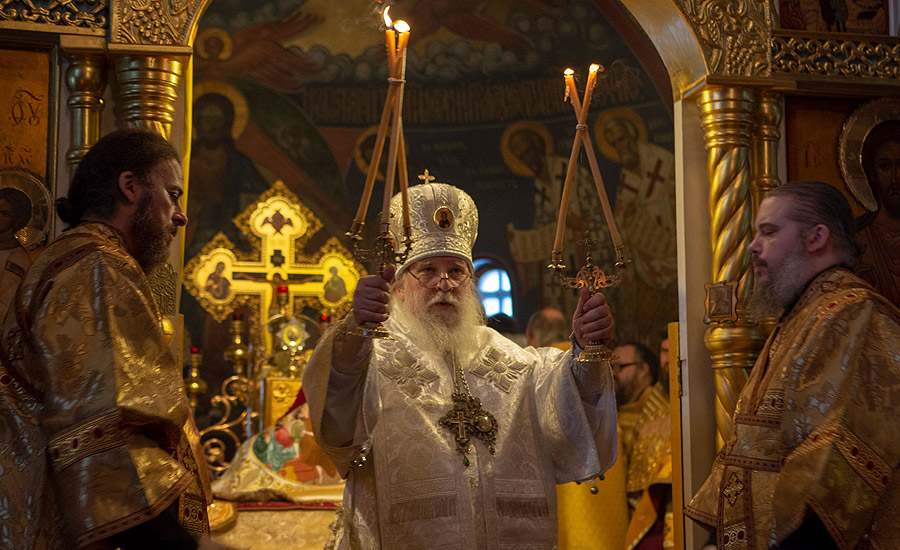 by Bishop Luke of Syracuse –
by Bishop Luke of Syracuse –
Yes, you should speak out. Don’t be didactic about it, but otherwise, you end up being indifferent or lukewarm. If you have the opportunity to stand up and express your displeasure, if you don’t do that, it’s a great danger. It’s a danger for your soul because the Lord says, “If you don’t confess me before men, I will deny you before the angels” (Luke 12:8-9). [Read more…]
Apologetics
Why Does God Put Us Through Trials?
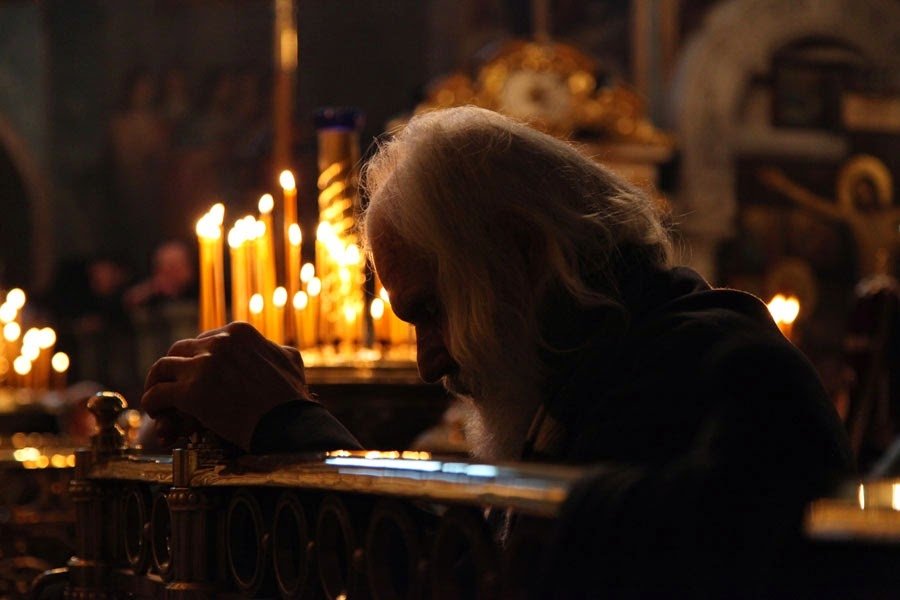 by Vladimir Basenkov –
by Vladimir Basenkov –
So that we finally believe in Him.
The unit for measuring faith has not been invented yet, but its value determines the degree and the character of a person’s closeness to God. There are fewer convinced atheists than we think. When asked whether or not they recognize the existence of God, most of your personal respondents will answer in the affirmative, even if they are not Christians or actively practicing representatives of any religion in general.
What kind of God they would bear in their minds and how actively they are growing in the knowledge of Him is another story, which ultimately determines the clarity and depth of faith. [Read more…]
Rebuke and Publicly Denounce Blasphemers
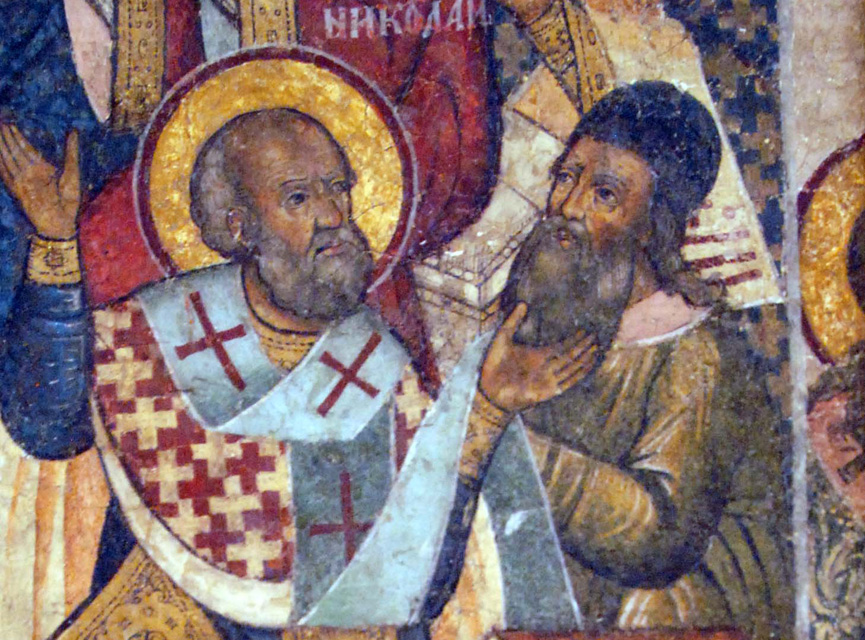 by St. John Chrysostom –
by St. John Chrysostom –
But since our discourse has now turned to the subject of blasphemy, I desire to ask one favor of you all, in return for this my address, and speaking with you; which is, that you will correct on my behalf the blasphemers of this city. And should you hear any one in the public thoroughfare, or in the midst of the forum, blaspheming God; go up to him and rebuke him; and should it be necessary to inflict blows, spare not to do so.
Smite him on the face; strike his mouth; sanctify your hand with the blow, and if any should accuse you, and drag you to the place of justice, follow them there; and when the judge on the bench calls you to account, say boldly that the man blasphemed the King of angels!
For if it be necessary to punish those who blaspheme an earthly king, much more so those who insult God. [Read more…]
Orthodox College Students: Staying Orthodox in Anti-Christian Environment
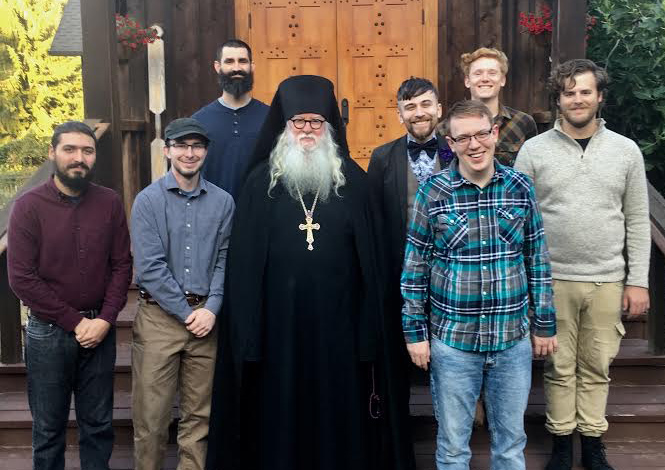 by Abbot Tryphon –
by Abbot Tryphon –
The summer months are coming to a close and many young people will be facing the prospect of heading off to college, some for the very first time. A scripture passage comes to my mind as I think of these wonderful young people preparing to leave home: “I am sending you out like sheep among wolves. Therefore be as shrewd as snakes and as innocent as doves (Matthew 10:16).” College professors almost universally enjoy challenging young college students to question authority, yet are taken aback when their own authority is questioned. They know they are addressing a class of impressionable minds and almost make sport of attacking the positions of their students.
My advice to Orthodox students is to refuse to be intimidated and don’t be discouraged. Most of these professors took years to acquire the knowledge and the skill to successfully defend their belief system, or lack thereof, including atheism. [Read more…]
Why Atheists Don’t Really Exist
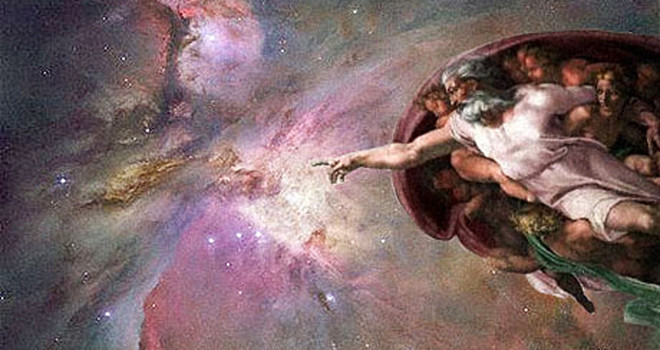 by Joe Bissonnette –
by Joe Bissonnette –
In the deeper rumblings of their very selves, where nature speaks through instinct and God speaks through conscience, there are eternal truths that can be avoided for a time but not ultimately denied. The truth is that there are no such things as atheists.
Confirmation bias is the tendency to ascribe greater significance to information that supports our pre-existing theories and lesser significance to information that contradicts those theories. We often do this subconsciously.
For example you get a new car, and now you notice that same type of car on the road with a much greater frequency than you had noticed before. But though confirmation bias generally refers to the inclusion or exclusion of data, there are other ways we can shoehorn the obvious to make it fit within our world view. [Read more…]
Given an Omnipotent, Fully Good and Loving God, Why do Good People Suffer?
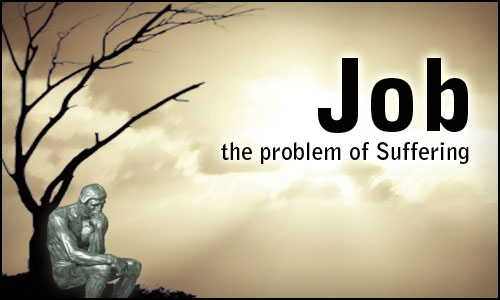 by Mackenzie Mulligan –
by Mackenzie Mulligan –
That is the question for the ages. The suffering of bad people, of evil people, is (for some) an easier question. There is a notion of cosmic reparation, whether of impersonal karma or personal Justice, that provides an explanation on that front. But what of good people?
That, at least, is a question asked repeatedly by characters in G. K. Chesterton’s The Man who was Thursday, and the answers Chesterton hints at are some of the most incredible I have ever read.
But first, we must eliminate the greatest of the false trails apologists often stray down: that human goodness is never good enough in comparison to Christ’s perfection. This relativity, while actual, is nonetheless irrelevant. The goodness and righteousness even of fallen humanity is real enough and meaningful enough to be attested to even from the throne of Jehovah himself. I trust ye have heard of the patience of Job? [Read more…]
Christianity is Truth and Reality, Not Mythology
 by Garet Pahl –
by Garet Pahl –
The heart of Christianity is a myth which is also a fact. By becoming a fact it does not cease to be a myth. God is more than a god, not less.
Secular mythologists would claim that mythology is the result of ancient man observing the facts and building up the story upon them. As time progressed, simple and crude myths became more elegant and complex, constantly reappearing in higher, more organized forms. Jesus Christ is immortalized in legend as a god that dies and comes back to life, because the concept was copied from less ordered myths about corn gods or gods of the harvest, who die in the fall and are reborn again in the spring. The secularist sees the search for religious significance as growth upward from the simple answers of mythology. C.S. Lewis says that this is the modernist assumption that higher things are always copies of lower things. Much like Darwinian evolution, where more complex life forms have evolved from lower life forms, the secularist claims that Christianity, along with other great religions, is simply myth evolved into a higher form.
On the contrary Lewis would demonstrate that lower things are copies of higher things. Mankind exists as the main example of this. We are made in God’s image. We are a copy of an infinitely higher being. Though the communicable attributes of God are present in mankind, mankind is not God and never will be. Likewise the pagan myths are true in as much as they are copies of the complete truth. The pagan myths though not true in historical reality, are nonetheless the distorted reflection of a higher reality. [Read more…]
Forming a Moral Foundation is Vital in Educating Children
 by Anthony Esolen –
by Anthony Esolen –
The forming of a moral imagination is not something additional in the education of a child. It is the education of a child.
What is remarkable in our age is not that half of our citizens believe it is wrong to kill the child in the womb, the child whose existence, except in the rare case of rape, is owing to our own voluntary actions. That would be like congratulating ourselves for believing that it’s wrong to steal someone’s car, to lie under oath to hurt an enemy, to throw our aged parents into the street, or to desecrate churches.
Where is the great moral insight? What’s remarkable instead is that half of us believe it is all right to snuff out the life of that child – because nothing must be allowed to interfere with our “right” to pursue pleasure, as we use the child-making thing as a sweating-off spa on our way to money, prestige, a five-bathroom mansion for two, a tenured chair in Women’s Studies, the mayoralty of Camden, another year of nights out on the town, whatever. [Read more…]
Christianity is One Great Miracle – The Grand Miracle by C.S. Lewis
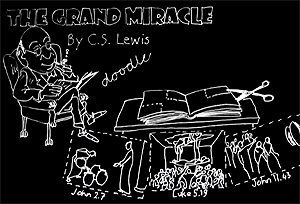 by C.S. Lewis
by C.S. Lewis
One is very often asked as present whether we could not have a Christianity stripped, or, as people who ask it say, “freed” from its miraculous elements, a Christianity with the miraculous elements suppressed. Now, it seems to me that precisely the one religion in the world, or at least the only one I know, with which you could not do that is Christianity. In a religion like Buddhism, if you took away the miracles attributed to Gautama Buddha in some very late sources, there would be no loss; in fact, the religion would get on very much better without them because in that case the miracles largely contradict the teaching. Or even in the case of a religion like Mohammedanism, nothing essential would be altered if you took away the miracles. You could have a great prophet preaching his dogmas without bringing in any miracles; they are only in the nature of a digression, or illuminated capitals.
But you cannot possibly do that with Christianity, because the Christian story is precisely the story of one grand miracle, the Christian assertion being that what is beyond all space and time, which is uncreated, eternal, came into Nature, into human nature, descended into His own universe, and rose again, bringing Nature up with Him. [Read more…]
Animal Immortality: Do Animals Go to Heaven?
 by Carol Apple –
by Carol Apple –
Do our pets go to heaven? C.S. Lewis imaginatively addresses the question of animal immortality in his book The Problem of Pain.
When a beloved pet dies people can feel desperate to know if animals, at least some animals, have an eternal destiny. The Bible does not say one way or the other, but C.S. Lewis gives animal lovers reason to hope. Although he acknowledges that his ideas are only guesses, what compelling guesses they are, and how comforting to those of us who have loved an animal.
Lewis discusses animal immortality in Chapter 9 of his book The Problem of Pain, in which he discusses the theological issues involved in animal suffering. Lewis asks the question of how we can reconcile God’s justice with the pain of innocent creatures who can neither benefit from nor understand their suffering, and finds no answer in this world. Therefore, he ventures forth to consider the mystery of animal immortality and how it might work. [Read more…]
